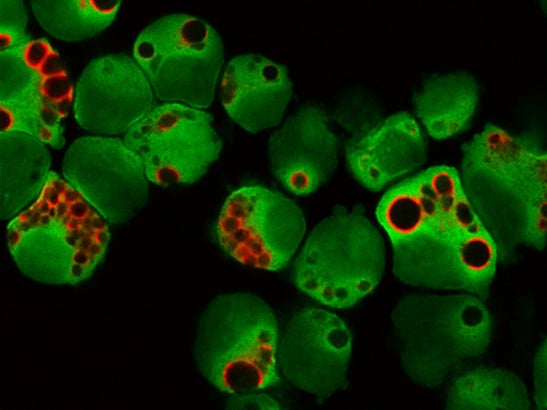Myeloma Molecular Therapy Group
Dr Martin Kaiser’s group aims to design gentler, tailored therapies for patients with multiple myeloma, an immune cell cancer of the bone marrow.
Professor Martin Kaiser
Group Leader:
Myeloma Molecular Therapy
Professor Martin Kaiser is the Chair of Haematology, group leader of the Myeloma Molecular Therapy group, and an Honorary Consultant Haematologist at The Royal Marsden NHS Foundation Trust.
Research, projects and publications in this group
Our group's research aim is to design gentler, tailored therapies for patients with multiple myeloma.
The goal of our laboratory is to design gentler, tailored therapies for patients with multiple myeloma, an immune cell cancer of the bone marrow.
Despite recent marked advances in therapies, most myeloma tumours ultimately become resistant and relapse. Outcomes vary largely with tumours relapsing within a short time in some patients, whereas others may stay in remission for multiple years.
Our group is using cutting-edge genetic tools to characterise the molecular make-up of patient tumour cells to predict tumour behaviour at the time of diagnosis and develop tailored management strategies. This includes identification of drivers of tumour evolution and delineation of vulnerabilities as well as characterisation of therapy resistance in relapsed disease.
In collaboration with the radiology research group at The Royal Marsden NHS Foundation Trust, molecular information is integrated with state-of-the-art functional (diffusion-weighted) MRI imaging data with the aim to improve diagnostic and treatment management strategies for patients.
Through my dual role as scientist and clinician and my active involvement in clinical research, the laboratory serves as a molecular analytical laboratory for several national trials and takes part in shaping improved diagnostic and treatment strategies for patients with multiple myeloma.
Closed: Role of the non-coding genome in the evolution of myeloma
Primary site: Sutton Funded by ICR Closed: Role of the non-coding genome in the evolution of myelomaRecent discoveries from this group

Next-generation trial shows five-drug combo can keep ‘ultra-high-risk’ bone marrow cancer at bay
